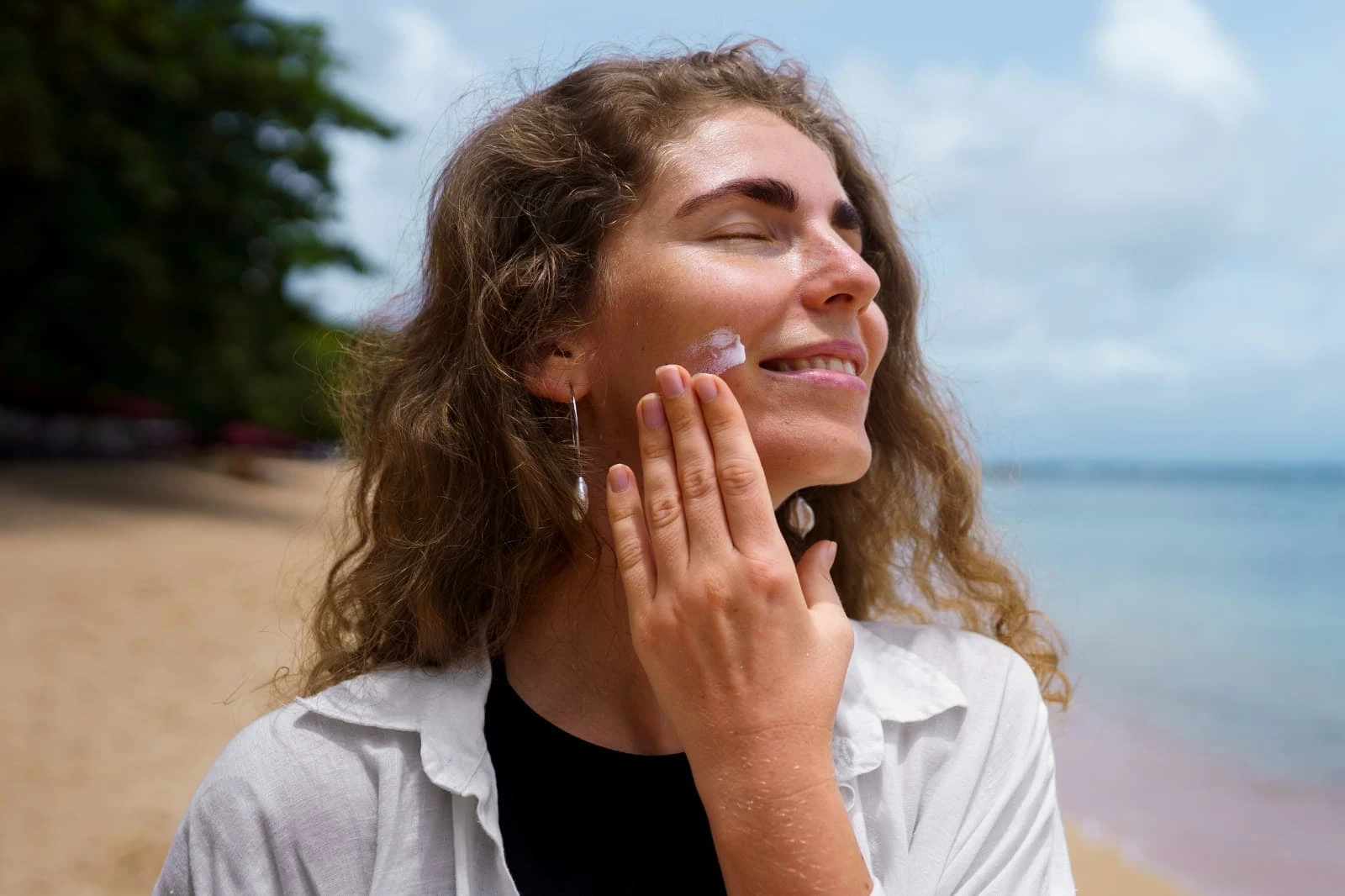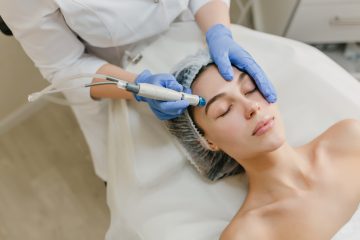Best Dermatologist in Hyderabad Shares Expert Tips on Choosing the Right Sunscreen for Indian Skin
As the best dermatologist in Hyderabad, I often remind my patients that in a country like India, where sunshine is abundant throughout the year, protecting your skin from sun damage isn’t just a seasonal precaution—it’s a daily necessity. While Indian skin does contain more melanin, which offers some natural protection, it is still prone to tanning, pigmentation, premature aging, and in some cases, even skin cancer.
In my practice, I strongly recommend the daily use of sunscreen as a non-negotiable step in your skincare routine. In this article, I’ll share expert insights on how to choose the most suitable sunscreen based on Indian skin tones, our diverse climate, and individual lifestyle needs.
Why Indian Skin Needs Sunscreen Every Day
It’s a popular misconception that melanin-rich skin doesn’t need sun protection. While melanin does offer some natural defense against UV radiation, it doesn’t make your skin immune. In fact, Indian skin often reacts to sun exposure by developing persistent pigmentation, uneven skin tone, and conditions like melasma.
The best dermatologist in Hyderabad highlights that ultraviolet rays—both UVA and UVB—affect the skin differently. UVB rays are responsible for surface damage such as sunburn, while UVA rays penetrate deeper, accelerating signs of aging by damaging collagen and elastin. Consistent use of sunscreen is your best defense against these harmful effects.
Understanding SPF and PA Ratings
When choosing sunscreen, it’s essential to understand the meaning of SPF and PA ratings.
SPF (Sun Protection Factor) measures protection against UVB rays, which cause tanning and sunburn. Here’s a simplified breakdown:
- SPF 15 blocks approximately 93% of UVB rays
- SPF 30 blocks around 97%
- SPF 50 provides about 98% protection
- SPF 100 offers up to 99%, but with minimal added benefit over SPF 50
In the Indian climate, the best dermatologist in Hyderabad recommends an SPF range of 30 to 50 for everyday use, as it strikes the right balance between protection and practicality.
PA Ratings, on the other hand, measure protection from UVA rays—the ones responsible for aging and pigmentation. Look for PA+++ or PA++++ for broad-spectrum protection.
Ingredients That Work for Indian Skin
Sunscreen is more than just a number on the bottle; the ingredients matter greatly, especially for Indian skin which often leans towards combination or oily types.
Look for These Ingredients:
- Zinc Oxide & Titanium Dioxide: These are physical blockers that sit on top of the skin and deflect UV rays. They’re gentle and effective for sensitive skin.
- Niacinamide: Known for its ability to reduce inflammation, control oil production, and lighten pigmentation.
- Vitamin C and E: Antioxidants that help neutralize damage from free radicals and improve skin tone.
- Hyaluronic Acid: Keeps the skin hydrated and helps maintain moisture balance.
Avoid These Ingredients:
- Oxybenzone: Linked to allergic reactions and potential hormonal disruption.
- Alcohol: Can be drying and irritating, especially in sensitive or dry skin types.
- Artificial Fragrances: Often unnecessary and may trigger allergic reactions in sensitive skin.
Choosing Sunscreen Based on Skin Type
Everyone’s skin is unique. The best dermatologist in Hyderabad emphasizes selecting sunscreen based on your skin type for optimal results:
- Oily or Acne-Prone Skin: Choose a gel-based, non-comedogenic sunscreen with a matte finish to avoid clogged pores.
- Dry Skin: Opt for cream-based formulas that include moisturizing ingredients like shea butter or ceramides.
- Sensitive Skin: Stick with mineral sunscreens containing zinc or titanium dioxide and avoid fragrances or alcohol.
- Combination Skin: Lightweight lotion or hybrid sunscreens offer a good balance without over-moisturizing.
- Pigmentation-Prone Skin: Tinted sunscreens with iron oxide protect against visible light, which worsens pigmentation issues.
Skincare in Urban Environments Like Hyderabad
In cities like Hyderabad, the challenge isn’t just sun exposure. Pollution, infrared radiation, and blue light from digital screens also affect skin health. These environmental aggressors can accelerate signs of aging and increase pigmentation.
The best dermatologist in Hyderabad suggests pairing your sunscreen with a Vitamin C serum in the morning. This helps combat free radical damage while enhancing your sunscreen’s effectiveness.
Sunscreen Usage Tips:
- Apply sunscreen at least 15–20 minutes before stepping outside.
- Even if you’re indoors, don’t skip sunscreen—UVA rays can pass through windows.
- Reapply every 2–3 hours, especially if you’re outdoors, sweating, or wiping your face frequently.
Dermatologist-Recommended Sunscreens for Indian Skin
Here are some tried-and-tested sunscreens recommended by the best dermatologist in Hyderabad, suitable for Indian skin tones and climate:
- Neutrogena Ultra Sheer SPF 50
Lightweight, oil-free, and perfect for oily or acne-prone skin types. - Re’equil Oxybenzone-Free SPF 50
Safe for daily use, this sunscreen avoids harmful chemicals and suits sensitive skin. - La Roche-Posay Anthelios SPF 50+
Excellent for post-treatment or sensitive skin, offering high protection and comfort. - Fixderma Shadow SPF 30+ Gel
Suitable for all skin types, absorbs quickly, and doesn’t leave a white cast. - Avene Very High Protection SPF 50+ Emulsion
Ideal for dry to normal skin, enriched with calming and hydrating ingredients.
Each of these has been vetted by dermatologists for effectiveness in the Indian climate.
When Should You See a Dermatologist?
There are situations where even the best sunscreen may not fully meet your skin’s needs. That’s when consulting a dermatologist becomes important.
Consider booking a visit with the best dermatologist in Hyderabad if:
- You experience persistent pigmentation or uneven skin tone despite sunscreen use
- Your skin shows allergic reactions or breakouts after applying sunscreen
- You’ve recently had cosmetic treatments like lasers or peels and need tailored sun protection
- You suffer from chronic skin conditions like melasma, rosacea, or acne
A dermatologist can help you build a personalized skincare and sun-protection routine that works specifically for your skin type and concerns.
Final Thoughts
In India’s sunny and often harsh climate, sunscreen is not optional—it’s a vital part of your skincare routine. The right sunscreen not only protects against UV damage but also prevents pigmentation, dark spots, and premature wrinkles.
Armed with expert insights from the best dermatologist in Hyderabad, you’re now better equipped to choose a sunscreen that matches your skin type, fits your lifestyle, and offers the protection your skin truly needs. Just remember: the best sunscreen is the one you’ll actually use every single day. Make it a habit, and your skin will thank you for years to come.



